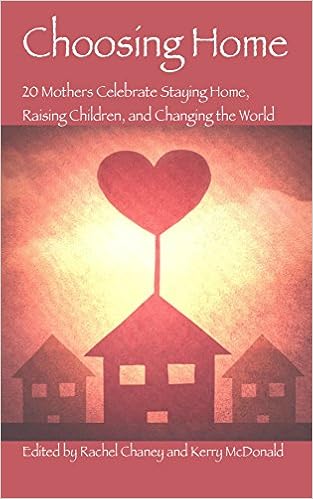Still, homeschoolers are accustomed to the "socialization" question. It's the typical, reflexive probe of most of us who have been conditioned to believe that the only way to learn and grow and have relationships is through 13 years of age-segregated, forced schooling. In fact, as I wrote recently, it was also the initial question I asked a homeschooling family when I first started researching this movement back in the late-90s.
Dig a little deeper and we realize that most questioners are really asking whether a child is social, not socialized. Do they have friends? Are they interacting with a diverse group of community members? Do they play well and collaborate with others? Yes, yes, and yes. As grown-ups, we fully appreciate that our ability to interact well with others and build meaningful relationships sprouts from our daily, organic interactions with a diverse assortment of people of all ages and experiences, not from those 15,000 hours of K-12 compulsory schooling and mandatory socialization.
To "socialize" means "to place under government or group ownership or control," or "to cause to accept or behave in accordance with social norms or expectations." By contrast, being "social" means "interacting with other people and living in communities."
Freed from the fetters of forced schooling, homeschooled children spend their lives "interacting" and "living in communities," just as we grown-ups do. There is no stratifying into arbitrary age classes where children are required to interact daily in an artificial environment with same-age peers and a static group of grown-ups. Homeschooled children, like most adults, interact in the big wide world. They have authentic exchanges with a wide variety of community members of all ages and abilities, and build relationships based on interests and ideas, rather than by mandated association.
Schooling was designed to socialize children, not to help them be social. Despite what most of us have been led to believe, our nation's compulsory schooling laws were originally created as a deliberate government attempt to impose conformity and sameness on an increasingly ethnically, culturally, and religiously diverse population.
Horace Mann, the acclaimed father of universal public schooling who passed the nation's first compulsory schooling law in Massachusetts in 1852, was disturbed by the influx of Irish immigrants into Boston in the early-19th century. Mann believed these immigrants threatened the cultural and societal norms at the time and needed to be reined-in. As Harvard's Paul Peterson writes about Mann and his Puritan colleagues in his book, Saving Schools: From Horace Mann to Virtual Learning (Belknap Press, 2010): "Even worse, most of these newcomers did not believe in the God of the Puritans but confessed to Catholic priests ultimately beholden to their superiors in Rome." (p. 26). Mann's biographer, Jonathan Messerli (Horace Mann: A Biography, Knopf, 1972), explains Mann's focus on creating a conforming, compliant, fully socialized workforce. He writes:
"In other words, Mann proposed to expand the scope of training and schooling, with its potential for control, orderliness, and predictability, so that it would encompass almost all the ends achieved by the far broader process of formal and informal socialization. That in enlarging the European concept of schooling, he might narrow the real parameters of education by enclosing it within the four walls of the public school classroom..." (pp. 443-444).It's also worth remembering that while Horace Mann was fighting to pass the country's first compulsory schooling law here, his wife homeschooled their children. As Messerli writes: "From a hundred platforms, Mann had lectured that the need for better schools was predicated upon the assumption that parents could no longer be entrusted to perform their traditional roles in moral training and that a more systematic approach within the public school was necessary. Now as a father, he fell back on the educational responsibilities of the family, hoping to make the fireside achieve for his own son what he wanted the schools to accomplish for others." (p. 429)
By narrowing the expansive concept of education to the singular prototype of schooling, and then making it mandatory under a legal threat of force, the nation's compulsory schooling forefathers locked us into one model of education that is not only harmful and outdated, but completely contrary to the research on the ways humans naturally learn. Boston College psychology professor, Dr. Peter Gray, is one of the leading researchers on self-directed learning. He writes:
"Compulsory schooling has been a fixture of our culture now for several generations. It's hard today for most people to even imagine how children would learn what they must for success in our culture without it...Most people assume that the basic design of schools, as we know them today, emerged from scientific evidence about how children learn best. But, in fact, nothing could be further from the truth."
Homeschooling families dare to imagine. We see the extraordinary ways in which our children learn without school, through real, authentic, varied interactions and experiences within our homes, around our neighborhoods, and throughout our communities. We value building relationships through genuine social interactions and the daily process of living in a dynamic world. We want our children to grow and learn in freedom, not coercion. We expect our kids to be social. But socialized? No thank you.
























My daughters are now 25 and 28. When we first started homeschooling, when #1 daughter was 5, a friend, surprised to find out what we were doing, said, "You're homeschoolers? But you're so normal. I thought that people who homeschooled were either religious fanatics or hippies living in busses on the side of the road."
ReplyDelete